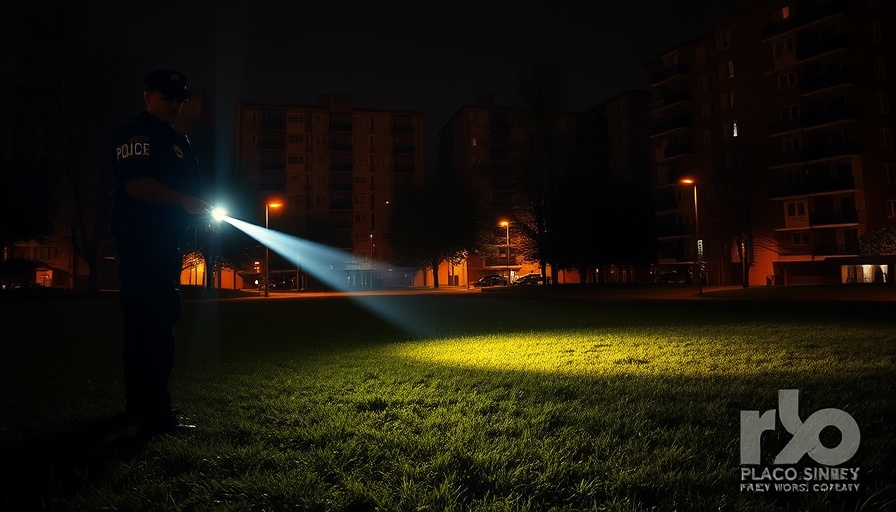
Reopening the Door to Justice: The Power of Cold Case Investigations
Cold cases, often filed away in dusty folders in the far corners of police departments, represent not just unsolved mysteries but also lost narratives of lives cut tragically short. For many families, these cases symbolize an ongoing quest for closure. The recent success in solving the 40-year-old case of Karen Schepers in Elgin, Illinois, underscores the essential role that investigative innovation and community engagement play in bringing justice to the forefront.
Community Connection: Why We Care About Cold Cases
How does the community rally around a cold case? The scheme involves more than just police efforts; it taps into a collective yearning for justice and accountability. In Schepers' case, her name resurfaced not merely through routine police work, but significantly due to the introduction of the podcast "Somebody Knows Something." Such initiatives personalize the investigation, turning abstract cases into relatable stories that provoke public interest and involvement. This grassroots support can be pivotal in generating new leads and re-engaging potential witnesses.
Technology's Transformative Role in Cold Case Resolutions
The use of technology in cold case investigations is revolutionizing how law enforcement agencies approach these long-standing mysteries. In Schepers' case, sonar technology, coupled with volunteer divers from Chaos Divers, enabled police to locate her vehicle and remains. This blend of innovation and community effort is emblematic of the modern tactics that could redefine public safety. As cities invest in advanced policing technologies, public safety can be significantly enhanced by using tools that streamline investigations, predict crime trends, and foster transparency in police actions.
Innovative Policing Strategies: The Path Forward
The resolution of cold cases through innovative approaches highlights the need for police departments to invest in continual training programs for officers focused on cold case management. Initiatives such as diversifying recruitment efforts and fostering community outreach programs can broaden the support base necessary for solving these cases. Furthermore, embracing mental health initiatives to support officers who deal with emotionally charged cases can improve overall officer wellness and effectiveness.
As public interest in cold cases grows, police departments like those in Elgin can inspire other agencies to explore creative solutions for their cold cases.
Building Trust Through Effective Communication
Reopening cold cases may also involve re-establishing trust between law enforcement and the communities they serve. Detectives Matt Vartanian and Andrew Houghton acknowledged the sensitivity required in dealing with families of cold case victims, illustrating the human aspect of law enforcement. By embracing communication strategies that foster transparency and inclusivity, police can foster community trust, which is crucial for effective policing.
The Future of Cold Cases: Predictions and Trends
As we look ahead, the trend of engaging the public in solving cold cases is likely to grow. Podcasts, social media campaigns, and community meetings can operate in conjunction with traditional investigative methods to rejuvenate interest in long-forgotten cases. The Schepers case serves as a beacon of hope, suggesting that no mystery is too cold. With continued collaboration, innovation, and community trust, the future looks promising for the resolution of enduring cold cases.
As stakeholders invested in public safety, it is essential to consider the successful strategies employed in these investigations. Continuous engagement with technology, training, and community support can strengthen the resolve to tackle cold cases and foster a safer society for all.
 Add Row
Add Row  Add
Add 

 Add Element
Add Element  Add Row
Add Row 




Write A Comment